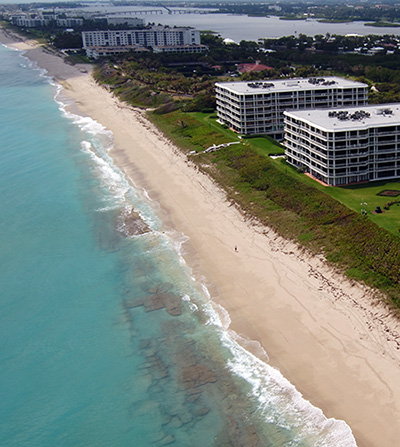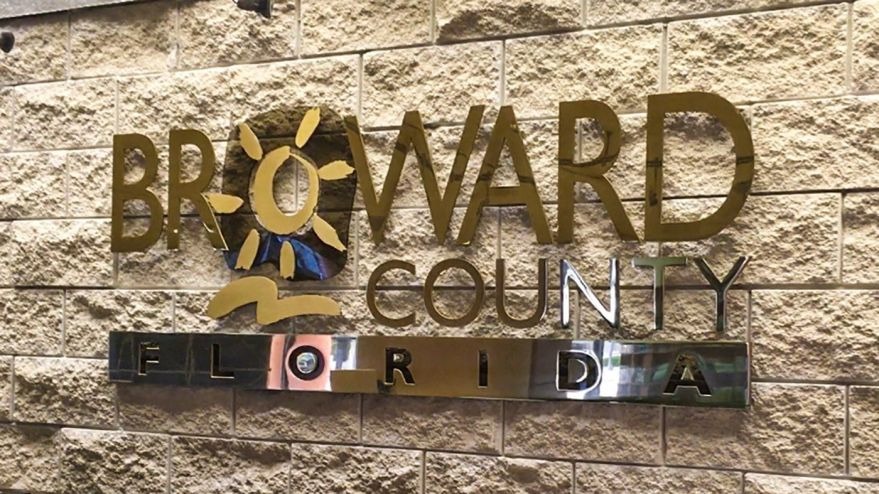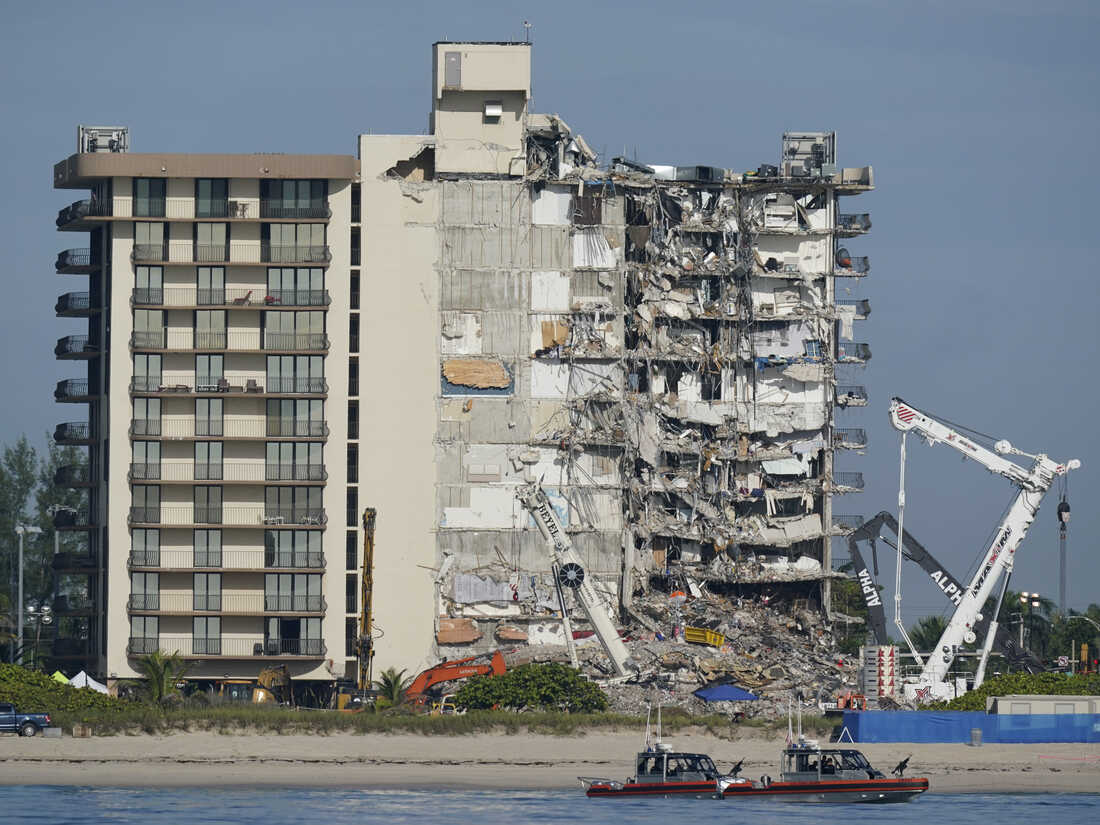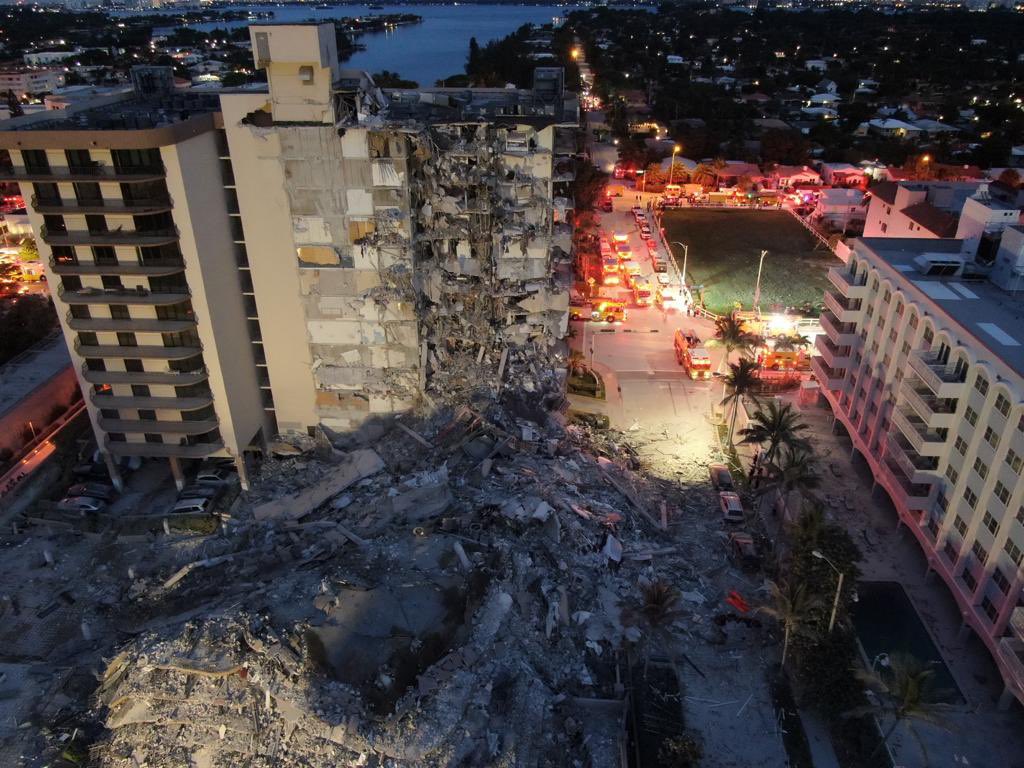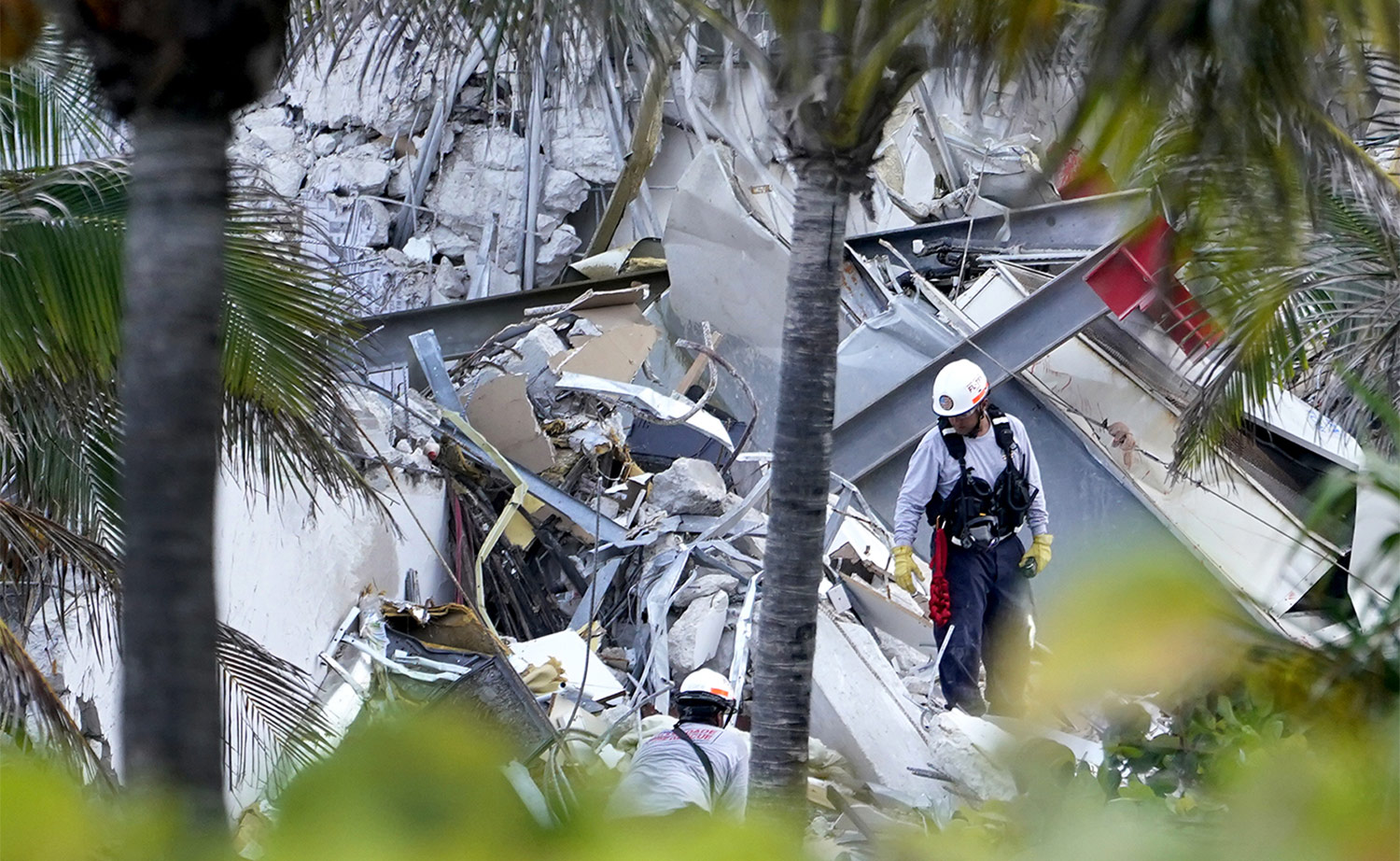
Florida’s latest milestone inspection legislation has sent shockwaves through the real estate and property management industry. This transformative piece of legislation, stemming from Senate Bill 154 (also known as The Milestone and SIRS Glitch Bill which we have covered extensively) has shifted from bill to a law as of June 13, 2023, impacting condominiums and cooperative buildings across the state. In this article, we delve into the key aspects of this legislation, explaining what milestone inspections entail, why they matter, who is affected, and what you need to do next to successfully navigate these new realities.
July 2025 Update: New legislation (HB 913) is in effect for SIRS and Milestone Inspections. Read about current SIRS law changes and Milestone Inspections changes in our latest articles.
Amending 553.899 and the Importance of Milestone Inspections
This piece of legislation is an amendment to Florida Statute 553.899 (previously known as Senate bill SB 4-D), which underscores the paramount importance of maintaining the structural integrity of buildings throughout their service lives. The legislation recognizes that proper maintenance and monitoring is essential to ensure the safety and well-being of the public. Following the tragic condominium collapse in 2021 in Surfside, Florida, the state has become resolute in its commitment to safer buildings, making statewide structural inspections for aging condominiums and cooperatives a necessity.
This intention is clear in the legislation’s preface, which emphasizes the need for safe buildings that do not pose threats to public health, safety, or welfare. As such, it is crucial for associations, property management firms, and building owners to understand the gravity of this legislation and its implications.
What Is a Milestone Inspection?
At its core, a milestone inspection is a type of structural safety building inspection. It’s important to note that it is not intended to bring buildings up to current building codes or address fire safety concerns. Rather, its primary focus is on the structural integrity of the building members, assessing whether they are safe for continued use.
By law, licensed architects and engineers are the only professionals qualified to conduct these inspections. They evaluate the general structural condition, identify repair needs, assess deferred maintenance, and, most critically, search for substantial structural deterioration. Substantial deterioration refers to issues that could compromise the integrity of a structural component, such as significant section loss in a column or extensive cracking in critical support beams.
Milestone inspections are divided into two phases:
- Phase One (Visual Inspection): In the first phase, a qualitative visual inspection is conducted. The licensed professional examines the building for any signs of substantial deterioration. If no such issues are found, the building passes this phase and proceeds to the next milestone. However, if substantial deterioration is suspected, the process may move on to Phase Two.
- Phase Two (Detailed Inspection): Phase Two is initiated when Phase One reveals potential substantial deterioration or deficiency. This stage involves a comprehensive examination to determine the extent of the issue and specify necessary repairs.
Components Evaluated in Milestone Inspections
Milestone inspections are primarily concerned with the critical structural elements of a building. This includes:
- Foundation: Ensuring the stability of the building’s base.
- Load-bearing walls: Assessing the integrity of walls responsible for supporting the structure’s weight.
- Shear walls: Evaluating walls designed to withstand lateral forces, crucial for stability.
- Roof deck: Ensuring the safety and integrity of the roof structure.
- Balconies: Examining balconies for structural soundness.
Importantly, milestone inspections focus on structural integrity and safety, avoiding cosmetic issues like cracked stucco or paint.
Who Must Comply with Milestone Inspections?
As of the current legislation, buildings that are 30 years or older, with a Certificate of Occupancy issued before July 1992, are required to complete a milestone inspection by December 31, 2024. Additionally, regulations surrounding buildings within three miles of the coast have been updated (see below).
It’s important to note that certain Florida jurisdictions, including Miami-Dade County, Broward County, Highland Beach, and the city of Boca Raton, had established building safety programs that required inspections at the 40-year mark and every ten years thereafter. With the introduction of the milestone inspection legislation, most of these programs shifted the initial inspection requirement to 30 years. This means that buildings in these areas will now need to undergo building safety inspections sooner than expected.
Impact on Condo Associations
I’d like to point out that it is not entirely clear how many condo buildings will require Phase Two inspections. It may be few, or many but there is no definitive way to project an estimate at this time. As such, proactive maintenance and early inspections seem to be key factors in detecting and/or avoiding substantial deterioration. It’s crucial for associations to understand the true age and condition of their buildings and act accordingly to meet the new legislative requirements.
Timelines and Deadlines for Milestone Inspections
SB 154 reiterates the strict deadlines for condominium associations to complete Phase One milestone inspections. Associations have 180 days to initiate Phase One after receiving notice from local building officials. This timeline becomes especially critical for buildings reaching the 30-year mark, as they can expect a notice at any time.
The December 31, 2024, deadline looms large for many associations. It is essential to be proactive in understanding the timeline and ensuring compliance, as the consequences of failing to meet these deadlines – discussed later in this article – can be severe.
Additional Critical Milestone Inspection Deadline Details:
Certificate of Occupancy Date Clarification
If the date of issuance for the certificate of occupancy is unavailable, the date of occupancy recorded by the local building official will serve as the official certificate of occupancy issuance date.
Proximity to Salt Water
The bill removes the previous provisions for buildings within three miles of the coastline and replaces them with new criteria. Buildings situated near saltwater, as defined in
§379.101, Fla. Stat., may now require milestone inspections as follows:
- The first inspection must occur by December 31st of the year the building reaches 25 years of age based on the certificate of occupancy date.
- Subsequent inspections should take place every 10 years.
Deadline Extensions
Building owners facing challenges in completing milestone inspections on time may request an extension from the local enforcement agency. This extension can be granted when an architect or engineer is under contract to perform the inspection, and completion before the deadline is not feasible.
Acceptance of Pre-July 1, 2022 Inspection Reports
Inspection reports conducted by licensed engineers or architects for structural integrity and condition before July 1, 2022, may be accepted by the local enforcement agency if they substantially comply with the new requirements outlined in this section. Condominium or cooperative associations must still adhere to unit owner notice requirements.
Such accepted inspection reports are deemed as milestone inspections for compliance with chapters
718 and 719 of the Florida Statutes. The subsequent 10-year milestone inspection deadline is determined based on the date of the accepted previous inspection.
Responsibilities for Mixed Use and Condominium Hotels
The responsibility for arranging milestone inspection reports falls on both the condominium association and any owner of building portions not subject to condominium or cooperative ownership. Compliance with inspection requirements is the shared duty of these entities.
Costs
Condominium or cooperative associations bear the costs associated with milestone inspections for the building portions they are responsible for maintaining under the association’s governing documents.
Exemptions
It’s important to note that these new requirements do not apply to single-family, two-family, or three-family dwellings with three or fewer habitable stories above ground. These properties remain exempt from the milestone inspection obligations imposed by the bill.
The Evolving Nature of the Legislation
The legislation surrounding milestone inspections is not set in stone and continues to evolve. There are discussions around “glitch bills” that aim to refine and clarify the requirements. These bills address issues such as the definition of “coast” and other intricacies that have sparked questions and concerns in the industry.
As these glitch bills progress, it’s essential for building owners, associations, and property managers to stay informed about the changing landscape of milestone inspections. The legislation’s nuances and specific requirements may shift, and it’s crucial to remain adaptable and compliant.
Understanding Jurisdictional Requirements
Many questions have arisen regarding jurisdictional requirements in different areas of Florida. For instance, Broward County, Miami-Dade County, and other municipalities have unique regulations and guidelines related to building inspections. These requirements often intersect with the milestone inspection legislation.
For those seeking clarity on jurisdiction-specific requirements, it’s advisable to consult the respective county or municipality’s official websites. These sources typically provide detailed information about building safety programs and inspection mandates.
Closing Thoughts
Florida’s Senate Bill 154 cements a new era of accountability and safety in the world of property management and real estate. The legislation’s focus on milestone inspections underscores the state’s unwavering commitment to ensuring the structural integrity of its buildings. In the wake of the Surfside tragedy, safety has become paramount, and these inspections are a critical step in safeguarding the public and maintaining property values. As we navigate the evolving landscape of milestone inspections, it is imperative for associations, property managers, and building owners to remain vigilant, proactive, and adaptable.
If you have questions about how SB 154 applies to your building, we encourage you to reach out to our team at Building Mavens. As South Florida’s premiere Milestone Inspections, SIRS, and Engineering Consulting firm, we understand the legislation’s nuances and deadlines, affording us the knowledge to help provide you with the inspections and guidance necessary to help you move forward with confidence and clarity. Contact our team today and let us seize this opportunity to build a safer and more secure future together.
About the Author

With a comprehensive background spanning public and private projects, Scott’s proficiency encompasses structural engineering design, construction oversight, and forensic analysis. His role involves investigating structural failures, construction defects, and code compliance to ensure project integrity while upholding safety standards and building codes. Beyond his investigative prowess, Scott is a skilled design engineer, contributing to diverse architectural facets including building envelope systems and designs for various materials. His extensive portfolio includes projects ranging from residential designs to commercial structures like warehouses and piers. Across all phases of project development, from conception to inspection, Scott’s dedication to innovative and compliant engineering solutions shines through.
Contact me for more information: info@buildingmavens.com

